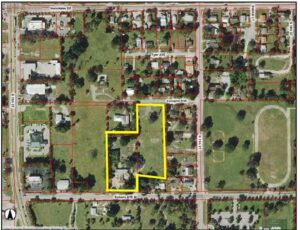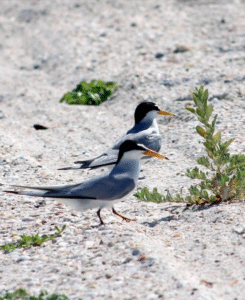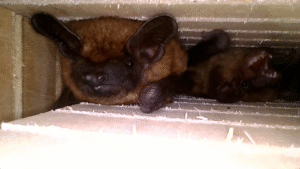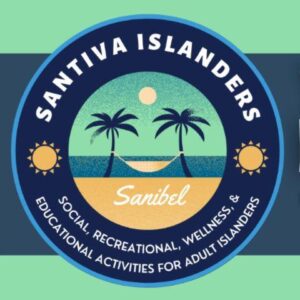As the Sanibel Causeway Islands reopen to the public for the first time since Hurricane Ian, a critical conservation effort is quietly underway. The Sanibel-Captiva Conservation Foundation (SCCF) is actively working to protect the nesting grounds of least terns — a state-threatened shorebird species known for forming colonies on open sandy stretches.
SCCF staff recently observed least terns returning to the causeway and preparing to nest, with telltale signs such as nest scrapes already visible. This marks the third consecutive year of nesting activity on the islands, a remarkable comeback after more than 30 years of absence. In a promising sign, the birds successfully fledged chicks last season.
Historically, the Causeway Islands offered ideal habitat for both least terns and black skimmers after the construction of the causeway in the 1960s. However, increasing vehicle traffic and unpredictable summer storms led to high nest failure rates. Despite efforts to redirect nesting to safer areas, many birds continued to return to the causeway, only to face the same risks.
“Despite the best efforts of our local conservation organizations to protect them and lure them to other nesting sites away from the causeway, the birds continued to fall victim to traffic and the weather,” explained SCCF shorebird biologist Audrey Albrecht. “They turned to other nearby beaches and rooftops but struggled to find suitable nesting habitat.”
Least terns have a brief nesting season, typically arriving in Southwest Florida in early April and departing for their wintering grounds by August. During this window, SCCF is coordinating closely with the Florida Department of Transportation, the Florida Fish and Wildlife Conservation Commission, and Lee County to ensure protective measures are in place.
As the islands reopen, visitors are urged to respect posted nesting areas and stay alert to wildlife conservation signage. These small birds are making a big comeback—and with continued community support, their success story can grow for years to come.






